By Jason Y. Ng and Billy Li from Progressive Lawyers Group
Since the anti-extradition bill movement erupted in June, mass demonstrations have evolved from an annual exercise on 1 July to a weekly—even nightly—occurrence.
In response to escalating violence, the police are increasingly issuing objection letters to public assemblies on the grounds of public safety. They have also stepped up stop and search operations targeting young people, and responded to protests with greater use of force. To date, nearly 1,200 people have been arrested and charged with a range of crimes including rioting, unauthorised assembly, vandalism and assault.
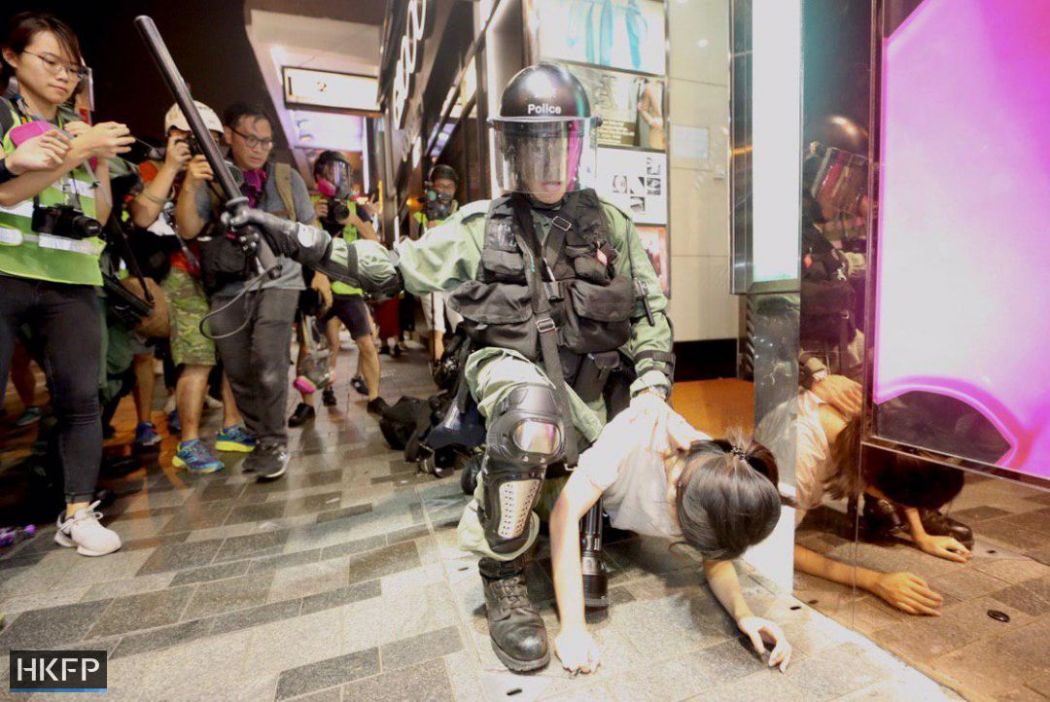
All of this has raised the stakes at risk in joining a protest, even as a peaceful participant. In the event of a police search or arrest, knowing your rights and doing the smart thing can be the difference between walking free and getting into serious legal trouble.
Below is an FAQ designed to guide you through the legal terrain when you exercise your constitutionally protected freedom of assembly. When it comes to managing protest risks, prevention is far better than cure.
Question: Can I get into trouble for just being present at an unauthorised assembly?
Answer: An “unauthorised assembly” is a public gathering or procession to which the police have issued an objection letter. Recent examples include the Yuen Long march on 27 July and the Chater Garden rally on 31 August. The crime is punishable by up to five years in prison.
Whether a person present at an unauthorised assembly is considered an active participant or innocent passer-by is a question of fact. The prosecution must present factual evidence to prove that the suspect is part of the assembly, such as photos or video recordings showing him or her chanting slogans or brandishing an anti-government placard.

On the other hand, a passer-by should by definition be just passing by. For instance, a person carrying a full suite of protective gear in a duffel bag would be hard-pressed to claim to be a mere shopper or observer. The principle is “substance over form”: your role is determined by what you do and how you behave, rather than what you choose to call yourself.
Question: Do I have the right to observe a protest and can the police ask me to leave?
Answer: You have the right to be present in any public place, but the right is not absolute. For instance, the police have the authority to clear an area on the grounds that a law enforcement operation is underway.
The clearance zone needs to be reasonable. For example, during a confrontation between riot police and protesters outside the Government Headquarters, the police may urge citizens to stay away from sections of Harcourt Road and Lung Wo Road. But they can’t stop you from observing from a safe distance that neither puts you in harm’s way nor impedes the police operation.
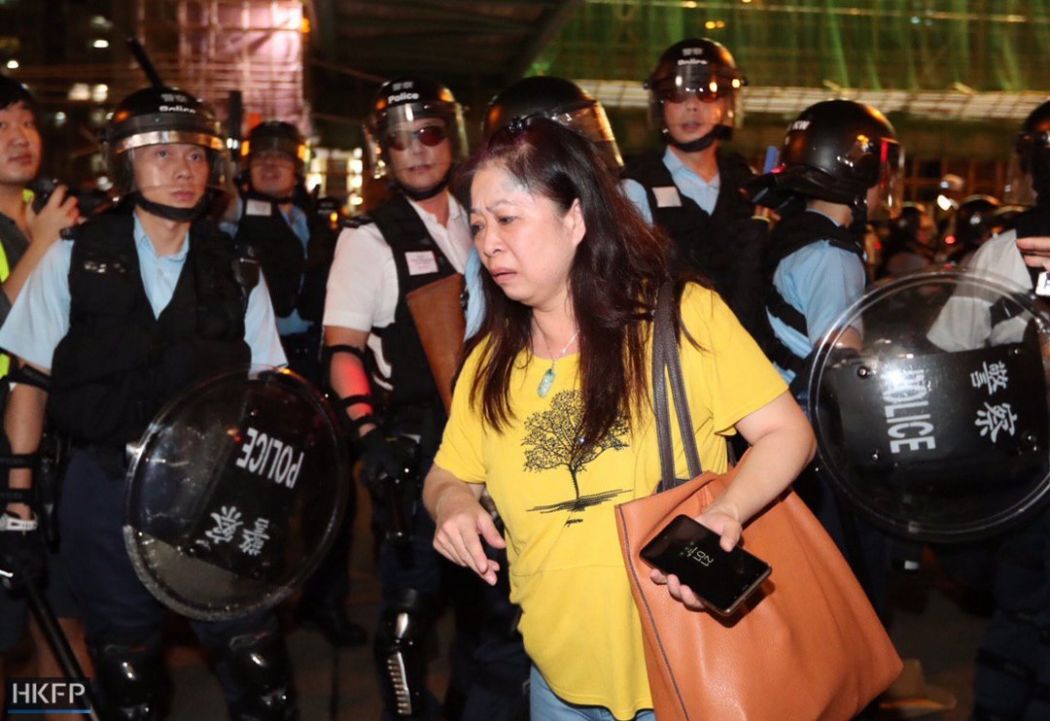
In Hong Kong, there are no laws forbidding photography of people in public, including police officers on duty. That means as an observer, you have the right to take videos or photos of police officers or participants in a protest. However, whether you should share those pictures on social media (which may have unwelcome consequences for the person photographed) is a question of personal judgement.
Question: Do the police have the right to stop and search anyone they want?
Answer: The Police Force Ordinance gives officers the authority to stop a person whom they “reasonably suspect” of having committed or intending to commit a crime. The officers may ask to check the person’s HKID card (or passport in the case of a visitor) and search him or her for anything relevant to the suspected crime.
The operative word in the preceding paragraph is “reasonably.” That is, the officer who stops you must act on more than a subjective suspicion. The standard is objective: whether a reasonable person would come to the same assessment.
For example, a person wearing a half-face respirator walking down Nathan Road toward the Mong Kok Police Station in the middle of the night may give rise to a “reasonable suspicion” of an illegal act. If stopped by an officer, the person may be subject to a pat-down and his or her bag may be searched. Refusal to cooperate with the search may lead to obstruction charges.
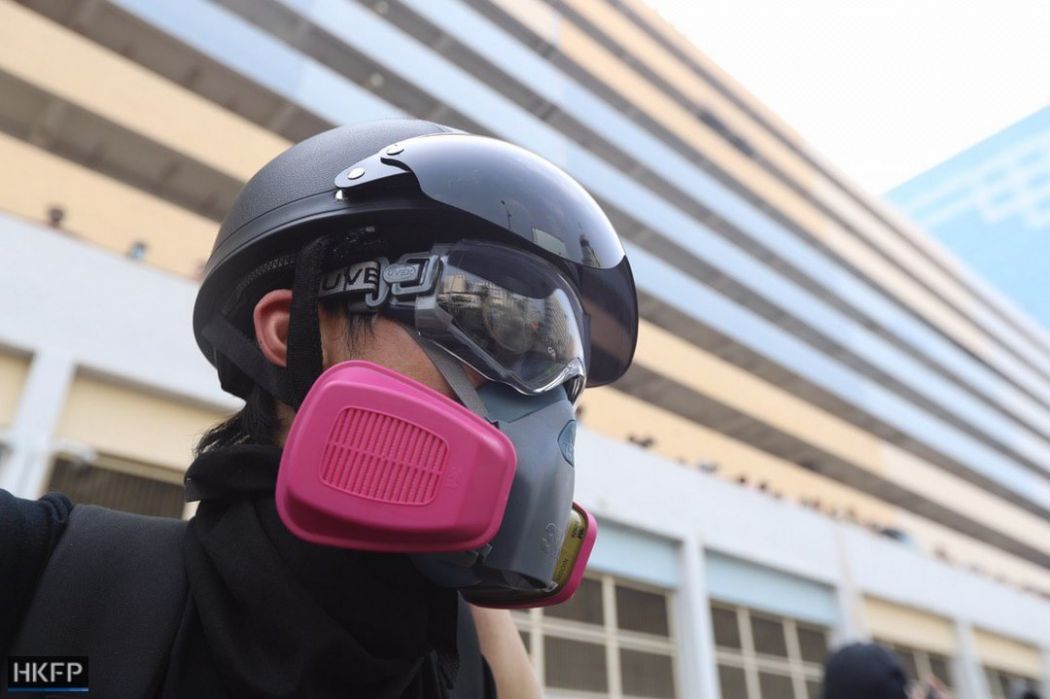
By law, only a police officer of the same sex can perform a search. If you are female, you should demand to be searched by a female officer. If there are no female officers on the scene, you should either ask for one to be dispatched or request to be brought to the nearest police station where the search can be carried out by one.
Question: Do I have the right to demand to see the officer’s identification?
Answer: All members of the Hong Kong Police Force must carry a warrant card while on duty. During an encounter with an officer, you have the right to ask to see his or her warrant card to ascertain his or her identity, especially if you have been stopped by a plainclothes officer or someone who claims to be an undercover officer. If the officer refuses, you have the right not to comply with his or her demands.
Question: What should I do if I get arrested?
Answer: In the event of an arrest, whether or not it is reasonable in your opinion, you should follow the three don’ts: don’t panic, don’t say anything that may incriminate yourself (we suggest that you should not say anything at all), and don’t use your smartphone to call anyone.
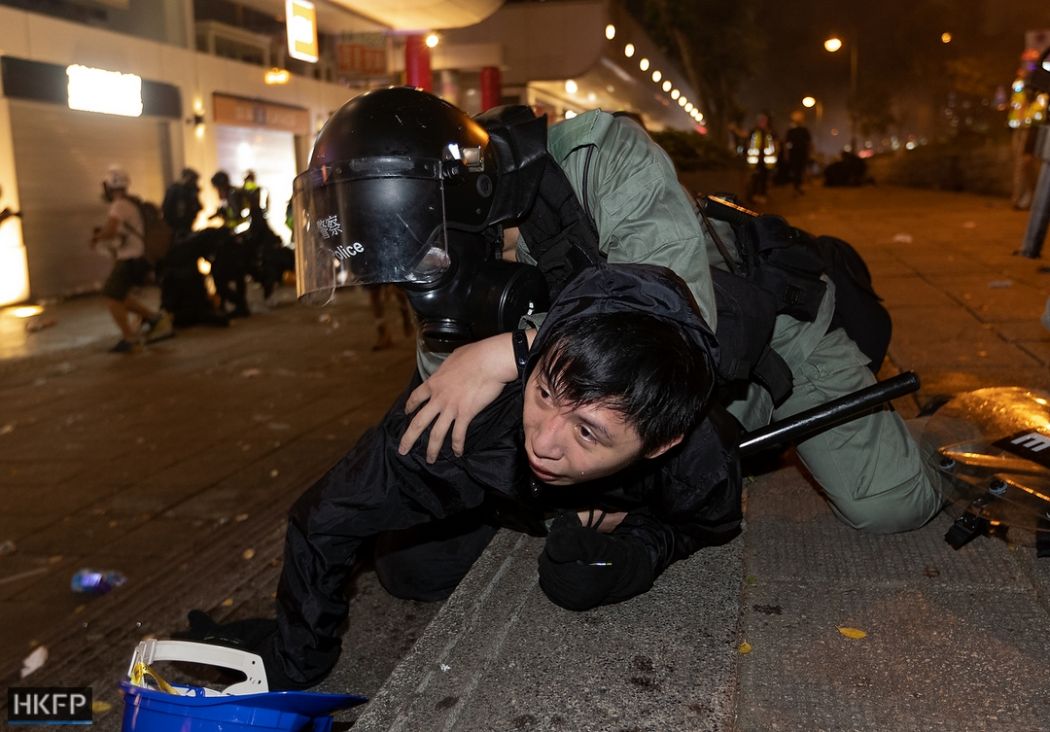
The third “don’t” is to make sure that your smartphone, which contains a significant amount of personal data, remains locked and inaccessible to the police (see also ‘During a search or an arrest, can the officer make me unlock my phone?’ below).
Upon an arrest, the officer is required by law to inform you of the reason for your arrest and read you your rights, in other words, you are not obliged to say anything unless you wish to do so but whatever you say will be taken down in writing and may be given in evidence.
At that point, your phone and other personal belongings will be seized and put in a sealed bag. You will not have access to them until your release. If you’re injured, you have the right to demand to be taken to a hospital for medical attention.
After that, you will be taken to the nearest police station, where you will be given an opportunity to make one phone call using the station’s landline. You may call a lawyer. If you don’t have one, you can ask for a list of lawyers on duty.
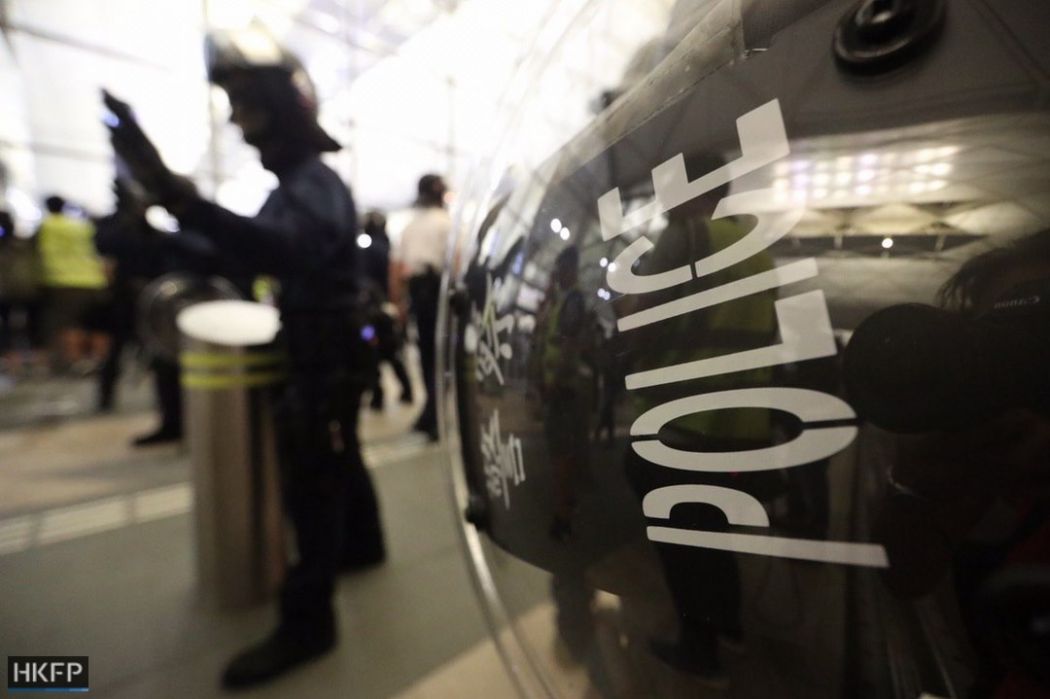
We suggest that you use that phone call to speak to a family member or a friend you trust. Your conversation should be brief and concise. Limit communication to the following:
- your location
- your HKID number
- the charge(s) for which you have been arrested
- whether or not you have been injured
Finally and most critically, ask the person to contact a pro bono lawyer, such as by sending a WhatsApp or Telegram message to the Civil Rights Observer hotline (+852 9463 2945). The text message should indicate your name in both English and Chinese, age, gender, HKID number and location. A lawyer on duty will meet you at the police station.
As a general rule, do not answer any questions or sign any documents before your lawyer arrives. Avoid conversations with the police (however friendly they behave toward you) or chit-chat with other arrestees. Once your lawyer arrives, he or she will guide you through the process of making a statement and arranging for bail.
Question: During a search or an arrest, can the officer make me unlock my phone?
Answer: Your phone is like your home—no officers may enter without a search warrant. If the police demand that you unlock your device, you should refuse to do so. If the officer attempts to unlock your phone by holding it up in front of your face (assuming your phone has face recognition capabilities), it constitutes an unlawful search and any evidence collected may be inadmissible in court.
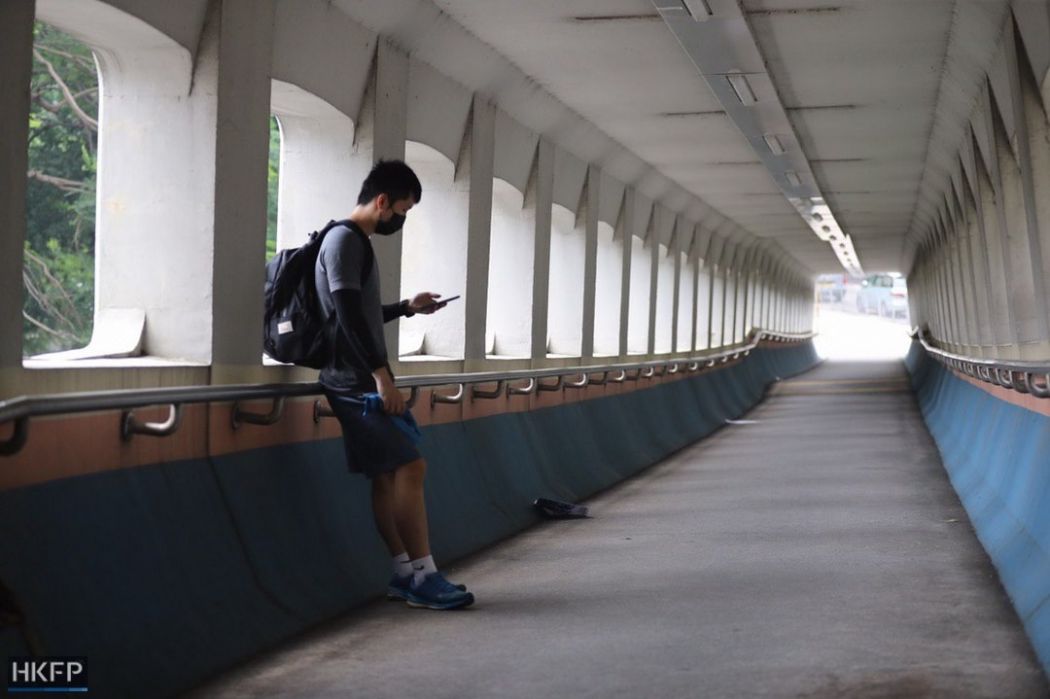
On the subject of a home search, friends who fear they may get arrested may ask you to do them a favour—they want you to go to their homes as soon as they are arrested and wipe their computers and other electronic devices before the police get there with a search warrant. Do not agree to that. Your well-intended act to protect your friend may get you in trouble for spoliation or destruction of evidence, which is an offence.
Question: What can I do if I have been assaulted or abused during or after an arrest?
Answer: If you have been assaulted, abused or otherwise mistreated by the police during an arrest or while in police custody, you may lodge a complaint with the Complaints Against Police Office (CAPO) by filling out an online form.
You should record details of the incident, including the location, the time and the officer’s collar number. Ask your lawyer to take pictures of your injuries and/or request a medical exam at a hospital. Any evidence you record or collect will also be highly relevant should you choose to file a civil suit against the police force in the future.
The information in this article is for general information purposes only. It does not constitute professional advice, whether legal or otherwise and does not purport to be comprehensive. You should seek legal or other professional help before acting or relying on any of the content.
Hong Kong Free Press relies on direct reader support. Help safeguard independent journalism and press freedom as we invest more in freelancers, overtime, safety gear & insurance during this summer’s protests. 10 ways to support us.

